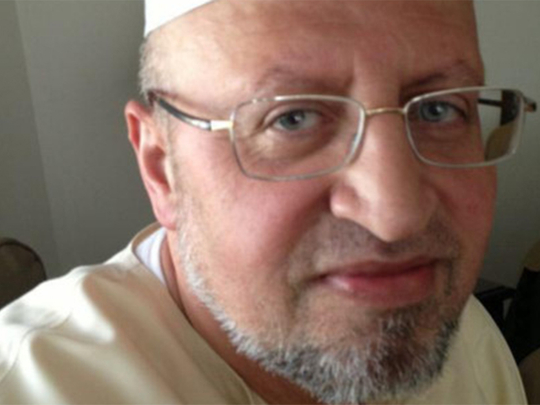
Dubai: Doctors and paramedics at the Dubai airport saved the life of an international transit passenger when he suffered a cardio-respiratory failure and stopped breathing earlier this month, an official told Gulf News.
The incident happened on August 11 and the DHA-run airport medical unit acted fast and successfully resuscitated the passenger.
Dr Jamil Al Tarash of the Dubai Airport Medical Centre told Gulf News: “On August 11, Tareq Ali Durvesh, a 45-year old transit passenger who was waiting to board an Emirates flight, suddenly collapsed at the airport and appeared to have no pulse. The paramedics rushed to him and called our emergency team. I immediately saw the patient had no external stimuli and was not breathing. He was having a cardiac–respiratory arrest, so we took the steps for advanced cardiac life support.”
The team administered electric shocks and emergency medication to deliver the victim’s heart to a normal perfusing rhythm. “Earlier the patient had a non-perfusing rhythm which is called ventricular fibrillation or a quivering heart muscle without it pumping blood,” added Dr Al Tarash.
Once the patient gained pulse and resumed breathing, the team kept him under observation at the Airport Medical Centre, Concourse B, till his vital signs improved after which Durvesh was transferred to Dubai Hospital where the patient was treated in their emergency response, underwent emergency surgery and was stabilised enough to be discharged. Durvesh who was relieved to have received such timely life-saving medical assistance, thanked the doctors and the medical team and after a week, left for Pakistan, his country.
Dr Jaychandran Thejus, interventional cardiologist at Zulekha Hospital in Sharjah advises people to exercise medical caution while travelling.
“Cardio Vascular Disease (CVD) is a broad umbrella of heart conditions and can include a minor heart issue that a person may have had a decade ago, an irregular heart rhythm to a recent stent procedure a patient may have undergone to an acute heart attack. Any one who suffers from CVD of any kind must take the following steps before travelling be it aircraft or train travel.
1. Get a fit to fly certificate from your cardiac surgeon or physician who will do an ECG and run other tests and evaluate if you can indeed fly.
2. Make sure that as a heart patient you are medicine compliant – which means you continue to take your regular dose of medication as per the duration prescribed.
3. Make sure to carry a concise medical history in your shirt pocket so that in case you are rushed to a doctor in case of a medical emergency, those attending on you know the background and can immediately act.
4. If you are a heart patient never ignore any symptoms indicative of a heart episode. If you feel heaviness on the left or centre of chest accompanied by some kind of burning sensation, experience giddiness or nausea, do not dismiss it as indigestion or heart burn. It is advisable for all even if it is a 17-year-old with no cardiac disease history, to not take a chance and immediately seek medical assistance even if it means you have to miss the flight.












